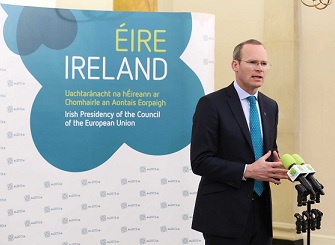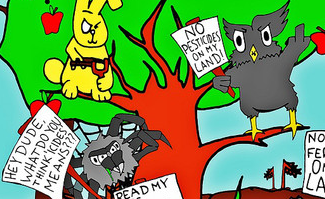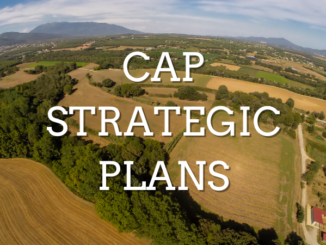To coincide with the Informal Meeting of the Council of Ministers, members of Ireland’s largest farming organisation, the Irish Farmers’ Association (IFA) rallied in Dublin to put pressure on Minister Coveney to deliver a deal the organisation will find favourable.

While the organisation made reference to thousands of attendees – “5000 farmers at Dublin Castle tell Minister Coveney NO CAP Cuts! ” – pictures taken at the event suggest a far smaller turnout.
The IFA want priority to be given to what they refer to as active farmers – the most intensive farmers who produce large amounts of meat, milk and cereal crops. The organisation wants the pace of internal convergence – movement towards a flat rate of payment across the EU – to be as slow and limited as possible, or to be derailed altogether.
IFA President John Bryan warned the Minister for Agriculture Simon Coveney “Commissioner Cioloş wants to introduce a mandatory minimum payment, which would be very disruptive to production and it fails to target monies available for redistribution to active farmers. Minister Coveney must reject outright a minimum payment by building strong alliances against the proposal and deliver the flexibility that were agreed at the March Farm Council.”
“There must be no back-tracking on the March Council agreement, which did not include any mandatory minimum payment,” Bryan stressed.
In what must have been an animated discussion, the IFA President met the Agriculture Commissioner Dacian Cioloş in Dublin. Bryan said afterwards “The Commissioner is refusing to accept the decision reached in March by the Farm Council and is intent on pushing through a set of proposals that is deeply flawed.”
While this may sound binding, in fact the March “agreement” or “decision” was simply the Council of Ministers adpoting their position ahead of the Trilogues. It was nothing more than one of three positions adopted, one each by the Parliament, Council and Commission.
However the pressure from the loudest voices in the Irish farm lobby continues on Minister Coveney, who must balance these interests with his overall role.
The leading farming newspaper in Ireland, the Irish Farmers’ Journal, de facto the print wing of IFA, points out “The Council of Ministers is by far the dominant partner in the trilogue negotiations. They are democratically elected representatives and the body responsible for implementing the reform programme. The Commission and Parliament will have no role in the implementation of the reforms; hence their more philosophical approach and inspirational wish list of reform measures.”
As this is the first time such a wide trilogue has been undertaken, the relative balances of power between each of the elements in these negotiations may not be so clear cut. It is of course also the case that MEPs are elected, presumably by inspirational and philosophical citizens.
It is worth remembering amongst all this spin that the IFA position would not benefit the majority of farmers in Ireland, according to other farming press sources and even a speech by Director of the Department of Agriculture’s own main research organisation Teagasc Gerry Boyle. While the economic case made is one of a “rising tide carries all ships” this is be necessity inegalitarian, as Gerry Boyle’s speech points out in passing.
It also contradicts that of environmental NGOS, including a 26 organisation environmental platform based in Ireland.
Nevertheless, the organisational power of the farm lobby in Ireland is such that it will be impossible for Simon Coveney to ignore them. The question is: how much will he heed them?




